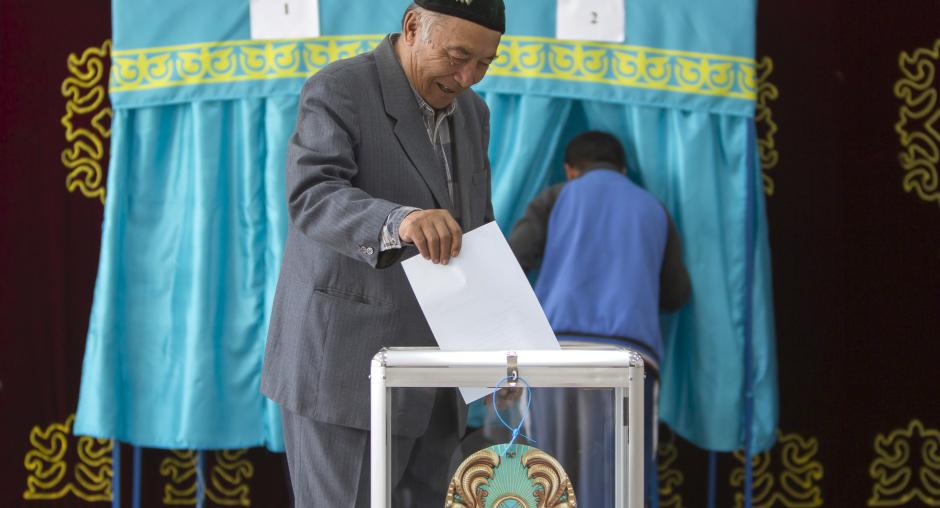Although Kazakhstan election preparations efficiently administered, choice for voters was limited, say ODIHR observers

ASTANA, 27 April 2015 – The preparations for the 26 April early presidential election in Kazakhstan were efficiently administered, but the predominant position of the incumbent and lack of genuine opposition limited voter choice, the observation mission deployed by the OSCE Office for Democratic Institutions and Human Rights (ODIHR) concluded in a statement released today.
“The incumbent and his political party dominate politics, and there is a lack of a credible opposition in the country. Voters were not offered a genuine choice between political alternatives,” said Cornelia Jonker, Head of the ODIHR election observation mission. “There were significant restrictions to the freedom of expression, as well as to the media environment.”
The involvement of government officials in the incumbent’s campaign and the location of Nur Otan offices in government buildings blurred the line between State and party. Credible reports of pressure on voters to attend rallies and vote in high numbers for the incumbent raised concerns about their ability to vote free of fear of retribution, the statement said.
The legal framework provides a technical basis for the conduct of elections, but there are undue restrictions on suffrage rights, as well as on certain fundamental freedoms. Candidacy requirements, together with the application of a language test for candidates, negatively impacted the inclusiveness of the registration process.
The election preparations were efficiently administered; all electoral deadlines were met and commissions at all levels were open to observers and media. The Election Law does not provide a mechanism to ensure equitable party representation in election commissions. In mid- and lower-level commissions visited by ODIHR observers, multiple members and almost all chairpersons were affiliated with Nur Otan, raising questions about commission impartiality.
Most stakeholders with whom the mission met expressed no concerns about the accuracy of voter lists. However, data collection for voter lists is not uniform and procedures for cross-checking do not sufficiently safeguard against multiple voting, the statement said.
A restrictive legal framework for media and recent sanctions, including closures of outlets and the blocking of websites, decreased the diversity of viewpoints and stifled public debate, the observers said. Although candidates were given even coverage, the extensive reporting on the incumbent’s activities contributed to an uneven playing field.
Election day generally proceeded in an orderly manner, but serious procedural deficiencies and irregularities were observed throughout the voting, counting and tabulation processes, including indications of ballot box stuffing.
